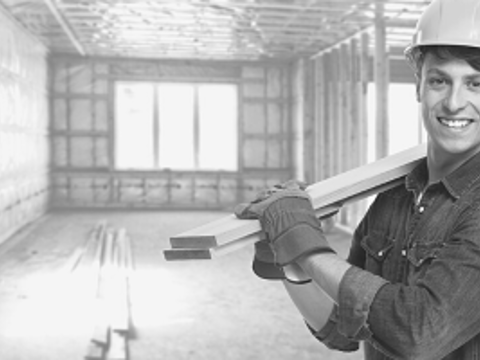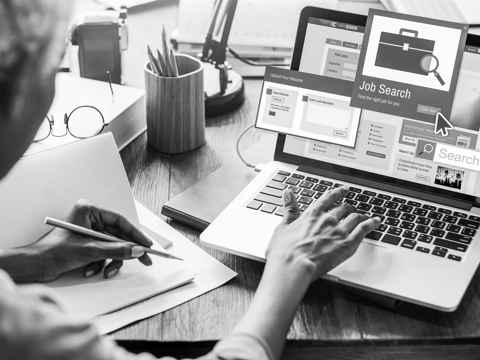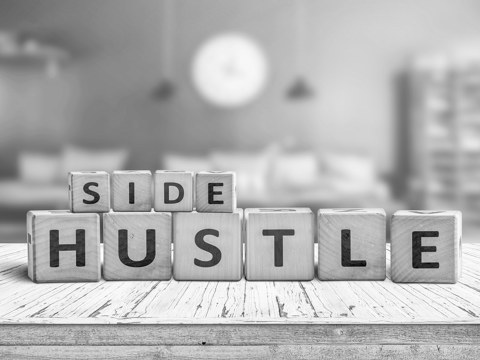How to interview like a pro…

By: Claire, redwigwam
Job hunting can be daunting. Let’s face it, you send out a lot of CVs and cover letters to land your dream job. There are a lot of rejections – and even more you never even get a rejection email from.
But it finally happens. You land an interview for your dream job. This is it. The one you’ve been waiting for.
Before the nerves kick in, read on. Because here are our top tips on how to interview like a pro…
Be on time
It should go without saying, but make sure you are on time for your interview.
Inevitably, things do sometimes go wrong, so build in some extra time for the journey – even if it means you sit in the car park for 30 mins!
If the worst happens and you really are going to be late – call and let them know. They may ask you to reschedule, especially if they have other interviews lined up that day. Don’t assume this will happen though – if they have seen great candidates who were on time, you might miss out.
Dress appropriately
Appearances don’t matter – except in an interview, they kind of do…
Make sure you are dressed appropriately for the company – and even if they have an informal dress code, make an effort for the interview. You maybe don’t need a full suit, but ripped jeans and a t-shirt are not appropriate either.
Dress to impress – and look like you want the job.
(As a rule of thumb, try and dress the same as the people interviewing you, but slightly more formal! You can always call the HR team or hiring manager to find out about attire – gives them another opportunity to acquaint yourself with them too!)
Equally important though is to wear something you feel comfortable in – you need to ooze confidence and wearing a pair of trousers which are too tight makes that a little more difficult to do!
Be polite to everyone
Have a friendly chat with the receptionist when you’re checked in. Smile at the people you walk past on the way to the interview room. Make eye contact.
Sounds simple enough but appearing as though you WANT to work somewhere is a great way to get off on the right foot!
When you are collected for the interview, start up some small talk before the interview starts – it’s a good way to feel more relaxed.
Do your research
Do your research on the company AND on the people who are going to be interviewing you. They’ll have done their research on you…
They’ll probably explain the company structure and where this role will sit in that as part of the interview process, but it’s essential you know what the company does, where it sits in the market and a little about the ethos.
You can ask questions about all these things – and then also double check it really is somewhere you want to work.
It’s good to know who is going to be interviewing you as well – LinkedIn is a great place to have a quick look at their previous experience and what their role in the company is. They’ll see you’ve checked them out – and that’s not a bad thing – shows you care!
Know the role
Do you have a detailed job description? Are there any ‘sticky’ areas where you have less experience, or feel you’ll need extra training? Any specialist skills needed?
Be prepared for questions around these – so even if you don’t have the exact skills, you can sell yourself on the skills you do have.
Find out about the interview format…
Ask what type of interview it is and who you will be meeting. Do you need to prepare anything in advance, and if so, how would they like you to share this?
You should still prepare in the same way whether it’s an informal chat, or a panel interview, but it’s good to know what to expect on the day.
Revise your CV
Yeah, yeah, yeah, it’s your CV, you know what’s on it…
But do you?
Can you remember the dates you started at each position? And the exact jobs you did there? Just have a quick read through before the interview begins – it will calm your nerves if nothing else!
Remember nonverbal communication
It’s obvious you’ll be expected to answer questions clearly and confidently, but don’t forget about the non-verbal elements of communication.
- Listen actively. Show you are paying attention, let the interviewer finish the question before jumping in with an answer.
- Don’t fidget. Appreciate it can be difficult if you are nervous, but try not to wriggle and jiggle your feet, pick your fingers, or twiddle your hair!
- Make eye contact. You don’t need to stare into their eyes, but look up when you are speaking, and if there is more than one person in the room, look at both equally to bring everyone into the conversation.
- Shake hands firmly. If you’re offered a hand to shake, do so firmly – it shows confidence.
Take your time
We get it. You want to impress and show them you know all the stuff. But take your time. They’ll have scheduled plenty of it. Pausing to think for a moment before you answer a question is fine – it shows you’re reflecting on what has been asked and not acting impulsively.
Try and stay on point – and answer the question you were asked
If you are passionate about something, it’s easy to go on (and on, and on…) BUT heading completely off topic, or repeating yourself shows a lack of focus (or indeed nervousness).
So, answer the questions, and only the questions.
Don’t lose your cool
You may come across interviewers who push you to get a reaction (we’ve all seen The Apprentice!)
Remember, this is all a test. They’re trying to see how you’ll react under pressure. Stay calm, take your time, and think about what your answer is before you speak.
Have some stock answers ready
While every interview is different, there are a few questions you can prepare for in advance as they often come up in one form or another:
- Where do you see yourself in 5 years’ time?
- Describe a time when you were faced with a difficult situation at work and how you resolved it
- Why do you want to work at this company?
- What are your greatest strengths and / or weaknesses?
- Why should we hire you?
All of these are opportunities to talk about yourself and how you want your career to progress.
The interviewer isn’t looking to trip you up – it’s just an opening into a discussion about your aspirations – and a chance for them to understand what makes you tick.
One of the best (or perhaps most random) questions I was asked at an interview once:
“Which three people (real or fictional) would you invite to a dinner party, and why did you pick them!”
Know your numbers…
It’s always good to back up an answer with some numbers behind it – so, tell so revise some case studies of things you have done in previous roles – with the numbers to back up your claims.
You’re likely to be asked your achievements, dealing with conflict and how you work in a team, so have some interesting anecdotes around these.
Remember, the people interviewing you will be asking the same questions to several people, so think of something interesting so they remember you!
If you don’t know the answer – admit it!
Now is not the time for lies…
If they ask whether you have experience in a certain area or with a tool and you don’t, then be honest. It doesn’t mean you won’t get the job, just that they may need to factor in extra training for something.
You can always use this as an opportunity to talk about how you learnt a new skill in a previous role and went on to use it successfully, thus showing you’re a quick learner and able to adapt as needed.
Interview them
Have some questions ready for them – and you don’t have to save it for the end of the interview. Ask about career opportunities and where they see this role being in five years. What plans do the company have for growth, where does the role fit in that?
This is probably not the time to ask about salary and annual leave – unless they ask you for your salary expectations. Be honest if they do ask, as you don’t want to undersell yourself.
Get a timescale…
As the interview comes to an end, get a timescale from them. When can you expect to hear back? Ask for some feedback on the interview.
Afterwards
You could send a note to whoever arranged the interview to say thank you and how much you enjoyed meeting them.
Then you sit and wait.
If you haven’t heard back in the agreed timescales, it is acceptable to follow up the next working day – often in these situations, no news is not good news, but there are sometimes reasons why a decision took longer than expected.
And finally - should you accept a tea or coffee if asked?
To be honest – there’s no right or wrong answer here. I would say water is essential, as you inevitably end up with a dry mouth from all the talking! If you really want a cuppa, and are offered, then take one.
More advice…
If you’re nervous before an interview, there are some great tips on dealing with it in this blog post – 6 ways to deal with anxiety before an interview.
And if you’ve interviewed like a pro, but heard nothing back afterwards, have a look at this blog post ‘Ghosted after a good interview’ for some tips on what you can do next.
And of course, you could avoid job interviews altogether by signing up to find temporary work with redwigwam. 1000s of flexible jobs, in locations all over the UK. Simply book the shifts you want to complete! Have a look at our latest jobs here.





